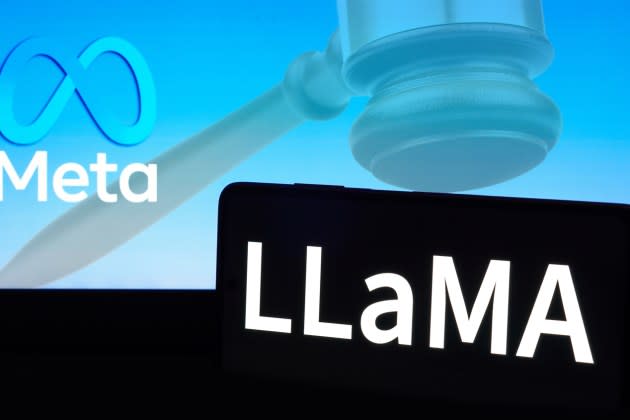Michael Chabon, David Henry Hwang, Other Writers Sue Meta AI For Copyright Infringement, Seek Class Action Status

Pulitzer Prize-winner Michael Chabon and Tony-winning playwright David Henry Hwang are among a group of writers that filed a class action lawsuit against Meta in San Francisco federal court for having “copied and ingested” their works to train its LLaMA AI platform.
Plaintiffs also including authors Matthew Klam, Rachel Louise and Ayelet Waldman are seeking class action status for the suit, which says their copyrighted books appear in the dataset that Meta has admitted to using to train LLaMA.
More from Deadline
Guillermo del Toro At TIFF: Filmmaker Slams AI; Chats Which Mediums Are Prime For Projects - TIFF
Google To Require Labelling For Political Ads That Use Artificial Intelligence
“Plaintiffs and Class members did not consent to the use of their copyrighted books as training materials for LLaMA,” said the group, which filed a similar suit last week against ChatGPT parent OpenAI.
Comedian Sarah Silverman sued Meta and OpenAI this summer for copyright infringement.
As AI grows, so do lawsuits by the creative community against its large language model. That’s an AI software program designed to produce convincingly natural text in response user prompts. “Rather than being programmed in the traditional manner [by engineers creating reams of code], a large language model is “trained” by copying massive amounts of text and extracting expressive information from it. The body of text is referred to as the training dataset,” explained the suit, filed in the U.S. District Court for the Northern District of California where the Facebook parent is based. Meta released LLaMA in Feb. of 2023.
Plaintiffs, however, have copyrights for their books and written works “and never consented to their use as training materials for LLaMA.” The works of Chabon (Wonder Boys, The Amazing Adventures of Kavalier & Clay, The Yiddish Policemen’s Union), of Hwang (M. Butterfly, Chinglish, Yellow Face, Golden Child) and works by the other plaintiffs “include copyright-management information that provides information about the copyrighted work, including the title of the work, its ISBN or copyright registration number, the name of the author, and the year of publication.”
Plaintiffs alone “have been and remain the holders of the exclusive rights under the Copyright Act of 1976…to reproduce, distribute, display, or license the reproduction, distribution, and/or display the works identified.”
More to come…
Best of Deadline
SAG-AFTRA Interim Agreements: Full List Of Movies And TV Series
2023 Premiere Dates For New & Returning Series On Broadcast, Cable & Streaming
Sign up for Deadline's Newsletter. For the latest news, follow us on Facebook, Twitter, and Instagram.

